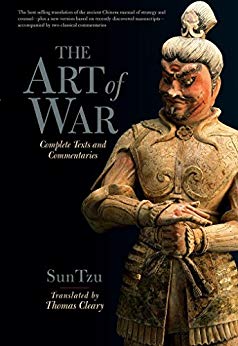

This article is an excerpt from the Shortform summary of "The Art of War" by Sun Tzu. Shortform has the world's best summaries of books you should be reading.
Like this article? Sign up for a free trial here .
In The Art of War, Sun Tzu says, “The greatest victory is that which requires no battle.” Why is this the greatest victory? How can you be victorious over your enemy if there’s no battle?
We’ll cover how preemptive strikes are the key to the best kind of victory and why the easy victory is actually the greatest victory.
The Easy Victory
A victorious leader wins first and battles second. This is why the greatest victory is that which requires no battle. Therefore, a good leader takes advantage of opportunity, wherein they succeed when winning is easy. An easy victory means understanding the nuances of your opponent in order to preemptively strike.
- Stand on advantageous ground by taking into consideration all circumstances that create vulnerability in your opponent.
- Another way of thinking about advantageous ground is creating a strategy that is so inscrutable and adaptable that defeating you becomes close to impossible.
- You have a contingency for everything, making you always prepared.
- You know your opponents so well as to be able to recognize even the slightest weakness and exploit it.
Victory is not just winning the battle. Killing is not the most important thing. Destabilizing your opponent is. If the battle is won but the opponent’s forces and country are obliterated, that is a lesser victory than if you are able to overcome them and force a surrender. Remember, the greatest victory is that which requires no battle.
- If you can weaken your opponent’s resolve and force them to concede with their nation intact, your victory is more successful.
- The people will have greater respect for a battle won with integrity than one won through total destruction.
Strike Preemptively to Avoid Battle
The best time to strike an enemy is when they are involved in preparations. Strike before the enemy is fully mobilized, and they will be unable to fight back. This may prevent a battle. This strategy involves using intelligence, rather than brawn, to win. This is why the greatest victory is that which requires no battle.
If intelligent strategies don’t work, the next strategy is to win through intimidation.
- Form alliances to increase your strength to a point where fighting would be ill-advised for your opponent.
- Form alliances with the enemy’s allies to disrupt the enemy’s power.
The greatest victory is that which requires no battle and ultimate victory is when battle has been thwarted through intelligence or intimidation, there has been no destruction, no cities have been seized, and no blood has been shed.
Historical Example: The Greatest Victory Is That Which Requires No Battle
During the Spring and Autumn Era (722 to 481 B.C.E.), when the Zhou dynasty was beginning to collapse, the state of Jin wanted to overtake the state of Qi, a much smaller state. The Jin sent an emissary to scope out the Qi. The emissary, feigning drunk aggression, insulted the Qi’s ruler and tried to force the Qi to disregard etiquette. When the Qi did not react to the insult and did not abide the aggressive demand, the emissary returned home and told the Jin leadership that the Qi were alert, cautious, and prepared. Therefore, they should not be attacked at this time. The Qi were able to thwart armed battle through intelligence.
———End of Preview———

Like what you just read? Read the rest of the world's best summary of "The Art of War" at Shortform . Learn the book's critical concepts in 20 minutes or less .
Here's what you'll find in our full The Art of War summary :
- How to mislead your enemies to win the war
- Classic examples from Chinese history to illustrate Sun Tzu's strategies
- How to use spies to gather information and defeat your opponents






